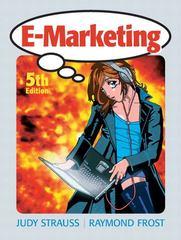Question
From California to New York, legislative bodies across the United States are considering eliminating or reducing the surcharges that banks impose on noncustomers, who make
From California to New York, legislative bodies across the United States are considering eliminating or reducing the surcharges that banks impose on noncustomers, who make $10 million in withdrawals from other banks' ATM machines. On average, noncustomers earn a wage of $22 per hour and pay ATM fees of $3.75 per transaction. It is estimated that banks would be willing to maintain services for 6 million transactions at $1.75 per transaction, while noncustomers would attempt to conduct 23 million transactions at that price. Estimates suggest that, for every 1 million gap between the desired and available transactions, a typical consumer will have to spend an extra minute traveling to another machine to withdraw cash.
Based on this information, what would be the nonpecuniary cost of legislation that would place a $1.75 cap on the fees banks can charge for noncustomer transactions?
What would be the full economic price of this legislation?
Step by Step Solution
There are 3 Steps involved in it
Step: 1

Get Instant Access to Expert-Tailored Solutions
See step-by-step solutions with expert insights and AI powered tools for academic success
Step: 2

Step: 3

Ace Your Homework with AI
Get the answers you need in no time with our AI-driven, step-by-step assistance
Get Started


